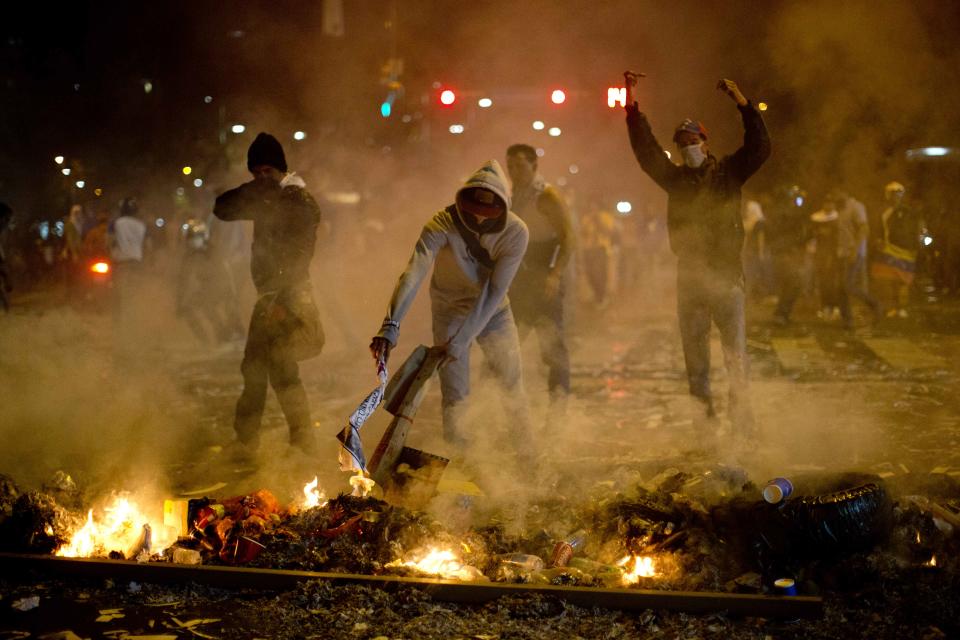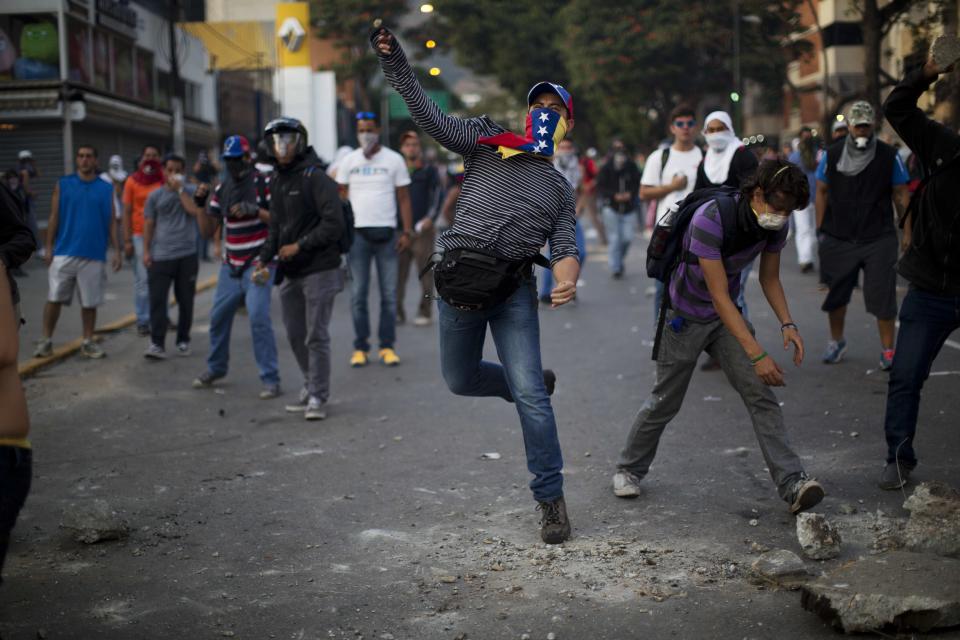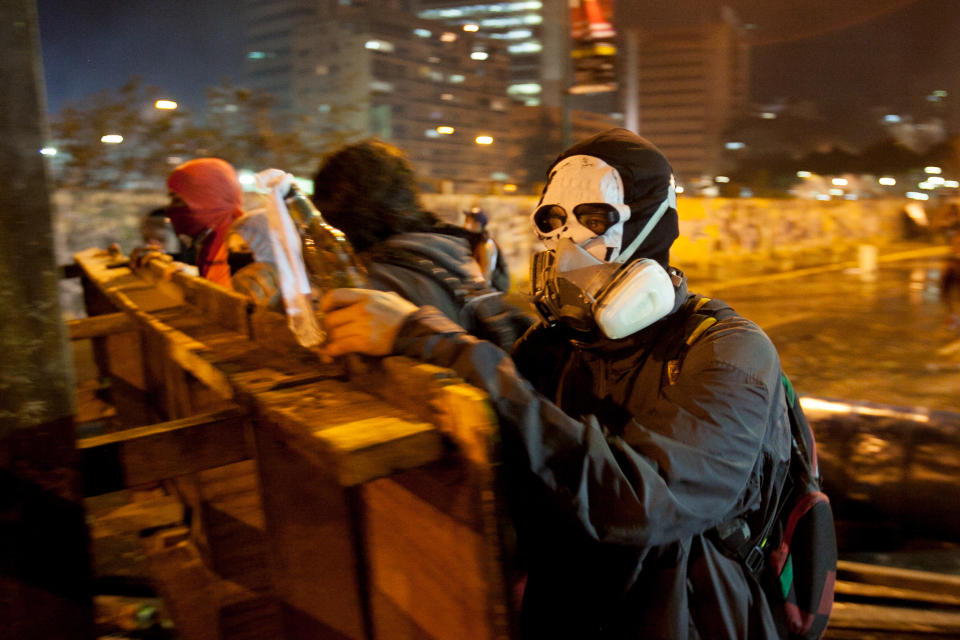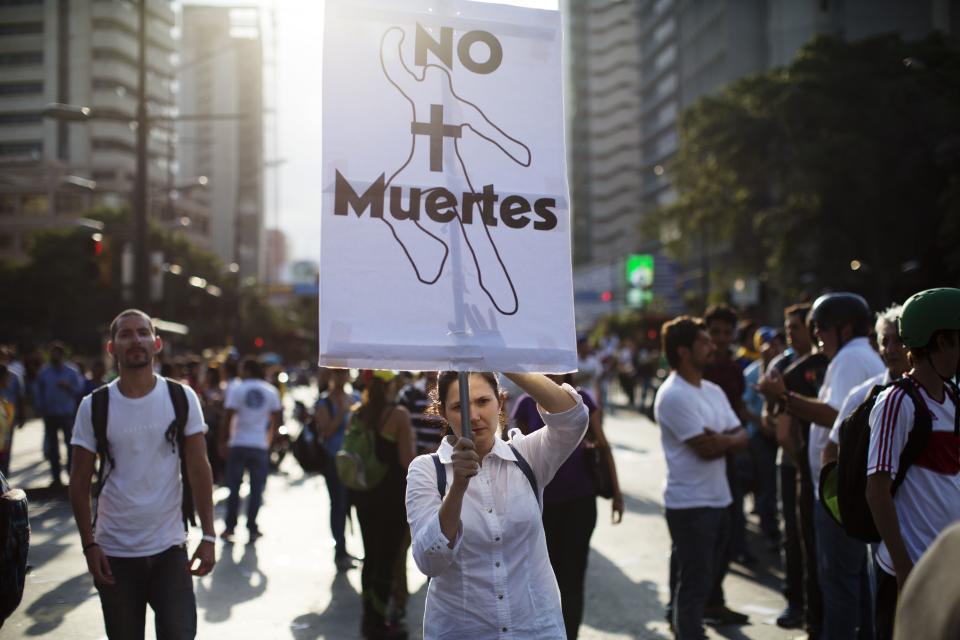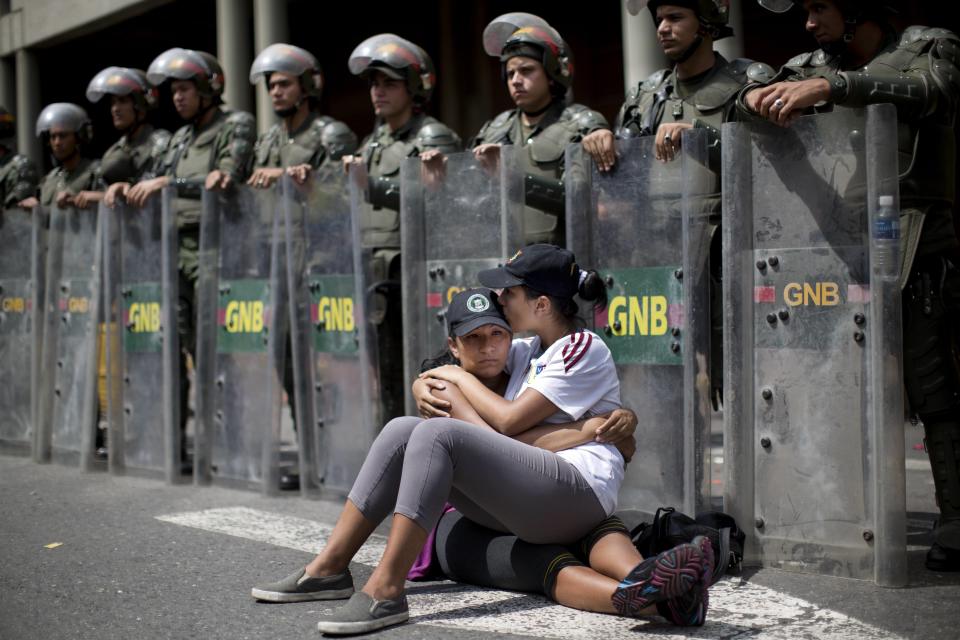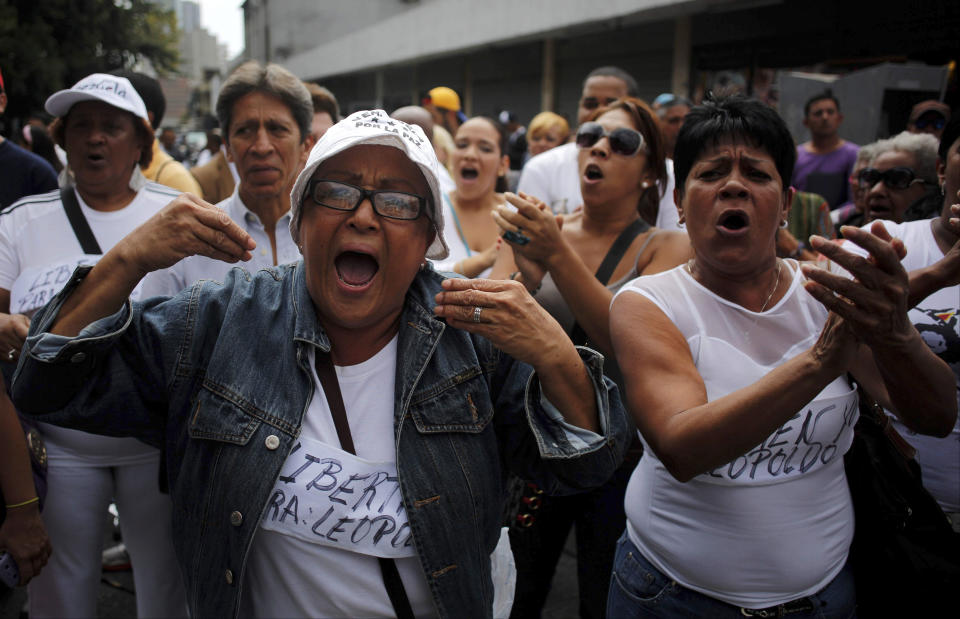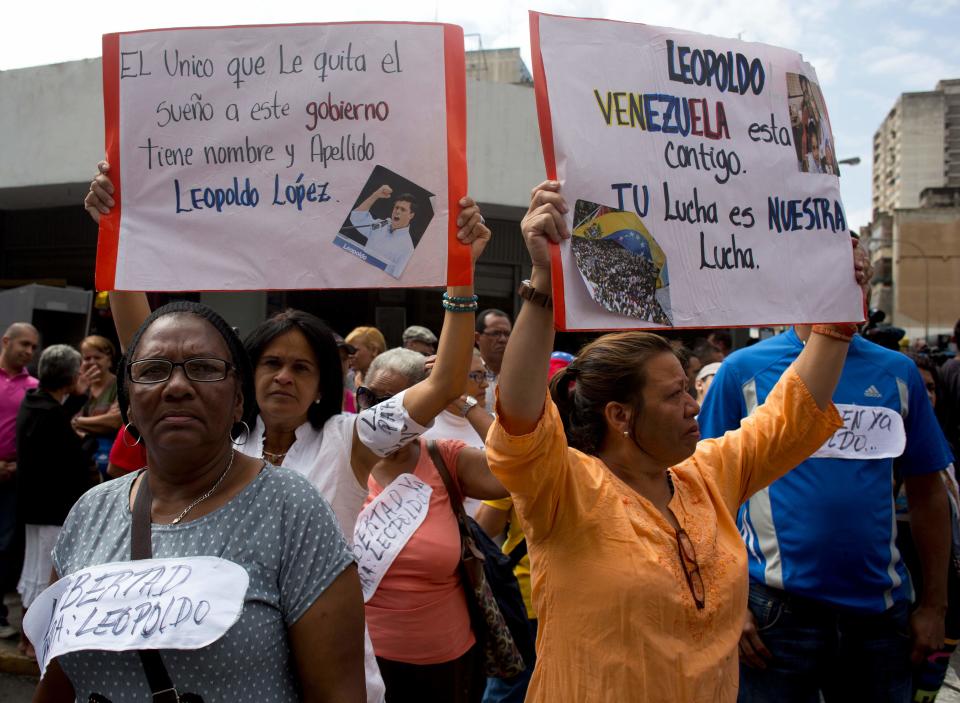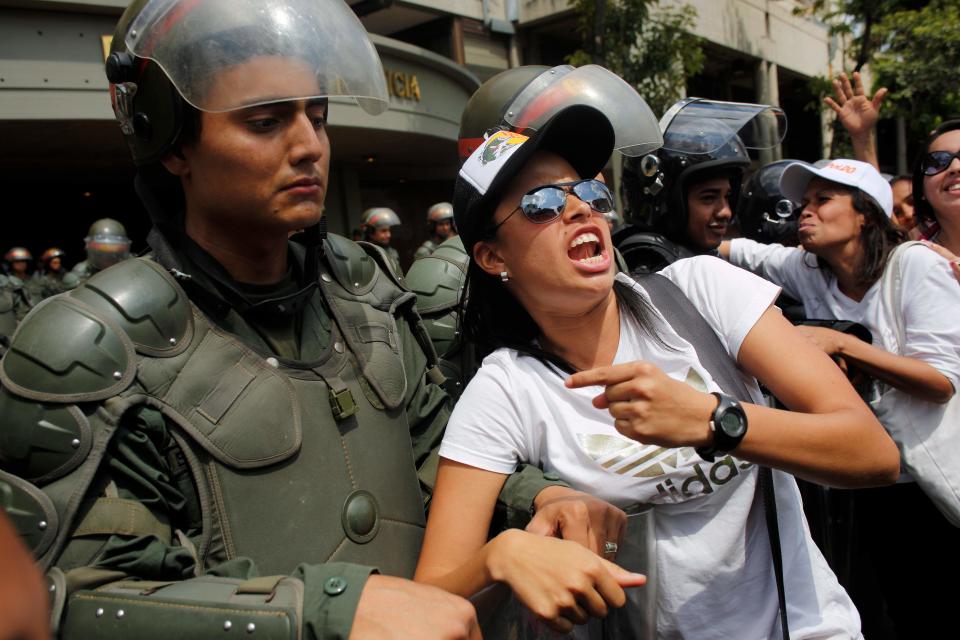Opposition leader faces charges in tense Venezuela
CARACAS, Venezuela (AP) — Violence is heating up in Venezuela as an opposition leader faces criminal charges for organizing a rally that set off escalating turmoil in the oil-rich, but economically struggling country.
After a chaotic night, with gunfire echoing through the streets of many neighborhoods, a judge ruled early Thursday that there is enough evidence to hold Leopoldo Lopez, who dramatically surrendered to authorities before thousands of cheering supporters this week, on charges that include arson and criminal incitement stemming from a massive Feb. 12 rally.
David Smolansky, a mayor of a district in Caracas and member of the Popular Will party of Lopez, said the leader's arrest and an aggressive manhunt for two other party members show that Venezuela is suffering the harshest wave of political persecution in decades.
"If this isn't a totalitarian system then I don't know what can explain what is happening in this country," Smolansky said at a news conference Thursday.
Prosecutors decided not to pursue more serious charges, including homicide and terrorism, when Lopez made a court appearance at a military base outside Caracas as violence flared across much of the country. The 42-year-old politician could face at least 10 years in prison.
In a message from his Twitter account, the opposition leader's wife, Lilian Tintori, urged his followers on as she confirmed that he would remain in jail. "Change is within us all," she wrote on his behalf. "Don't give up. I will not."
In the hours before the decision, President Nicolas Maduro had suggested in a nationally broadcast speech that Lopez would remain in custody and face criminal charges.
"I said, 'Send him to jail,' and that's what happened and that's what will happen with all of the fascists," Maduro said in a speech that lasted more than two hours. "I won't allow him to challenge the people of Venezuela, the constitution."
The government has accused Lopez, a former mayor, of attempting to foment a coup in the South American nation.
Anti-government protesters in Caracas and other cities set trash fires in streets and threw rocks at National Guard troops, who fired tear gas, water cannons and rubber bullets.
Gunfire was heard in downtown Caracas while Maduro was on television and videos and photos on social media showed several people with serious injuries and unconscious, but the circumstances and conditions could not be verified.
The crackle of gunfire mixed with the roar of swarms of motorcycles, a combination of police and National Guard troops as well as the pro-government paramilitaries known as "colectivos."
In videos circulating on social media, police and guard troops can be seen pursuing protesters in the streets and firing weapons, the shots competing in the night with the sound of citizens banging pots outside their windows in protest and shouting insults.
Demonstrators are protesting Lopez's detention as well as the rampant crime, shortages of consumer goods and inflation rate of more than 50 percent that has made life difficult for many in the country of nearly 30 million people.
The president said he would take harsh measures in Tachira, an opposition stronghold on the nation's western border with Colombia where there have been fierce clashes between security forces and protesters. Maduro said he was prepared to declare a "state of exception," a form of martial law.
"If I have to decree a state of exception for Tachira and send in the tanks, I am ready to do it," he warned.
The opposition is planning marches across the country Saturday to protest Lopez's jailing, which has made him a cause celebre among opponents of Maduro. It's helping him to eclipse to some degree Henrique Capriles, the opposition's two-time losing presidential candidate who was building support for another challenge in two years.
Capriles attended a rally on Feb. 12 in Caracas led by Lopez but did not appear on the stage to address the masses of demonstrators. Clashes with police erupted afterward, after the opposition leaders and most of the protesters had left, and resulted in three deaths. In Twitter messages Wednesday, Capriles accused the government of infiltrating opposition demonstrations to provoke violence.
On Tuesday in Valencia, the third largest city, National Guard troops shot rubber bullets and unknown gunman on motorcycles fired live rounds at protesters. Genesis Carmona, a 22-year-old university student who had been Miss Tourism 2013 for the state of Carabobo, was struck in the head and killed by a bullet, a death that reverberated in a country that prizes beauty queens.
___
Associated Press writers Fabiola Sanchez and Andrew Rosati contributed to this report.

